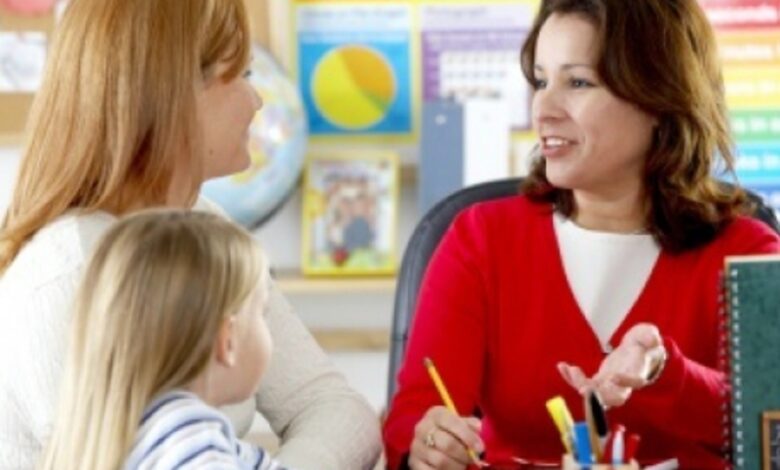The Ombudsman intends to organize a constructive dialogue between teachers and parents

The war significantly changed the realities of the Ukrainian educational process. Students are forced to study in conditions of limited access to resources, disturbing news and security threats. At the same time, both teachers and parents are under enormous stress, trying to ensure the proper quality of education and support for children. In such conditions, interaction between teachers and parents becomes a critically important component of the educational process. But often this dialogue turns into conflicts, misunderstandings and even aggression.
Education ombudsman Nadiya Leshchyk, understanding the complexity of this situation, determined one of the key tasks of its activity is the development of algorithms for non-violent and effective communication between teachers and parents.
Modern problems in communication between teachers and parents
Nadiya Leshchyk emphasized that cases of incorrect communication are becoming more and more frequent. Teachers complain about constant phone calls from parents, even on weekends or late hours. Some parents think it’s okay to come to school and make a fuss, instead of calmly discussing the problem. Such situations create tension in relations and prevent the establishment of a constructive dialogue.
According to the ombudsman, one of the reasons for this problem is the lack of clear rules and communication algorithms. Teachers, who already work in difficult conditions, need protection from violations of their rights to rest and personal space. On the other hand, parents should understand that their actions should be aimed at cooperation and not at creating conflicts.
The development of clear communication algorithms that will take into account the interests of both parties will reduce the level of conflicts and improve the general atmosphere in schools. It is also important that such initiatives will help not only teachers and parents, but also have a positive effect on students who will not witness conflicts between adults.
Tips for parents: how to communicate with teachers correctly
- Respect the teacher’s time. Avoid phone calls on weekends or late hours. If there is an urgent problem, try to solve it first through official channels (email, school chats).
- Plan meetings in advance. If you need to discuss your child’s performance or behavior, arrange to meet at a time convenient for the teacher.
- Keep calm. Even if you have complaints or dissatisfaction, try to explain your position without aggression. Constructive criticism is always more effective than yelling.
- Be open to dialogue. Listen to the teacher’s arguments, try to find a compromise, because the main goal is the well-being of your child.
- Follow communication etiquette. Avoid public accusations or conflicts in front of other students or parents.
- Address issues formally. If you are not satisfied with the teacher’s decision, contact the school administration instead of starting scandals.
In general, the dialogue between teachers and parents is one of the key factors that affects the success and comfort of the educational process. Many aspects of school life depend on how effective this communication is, including student success and mutual understanding between parties in the educational process.





